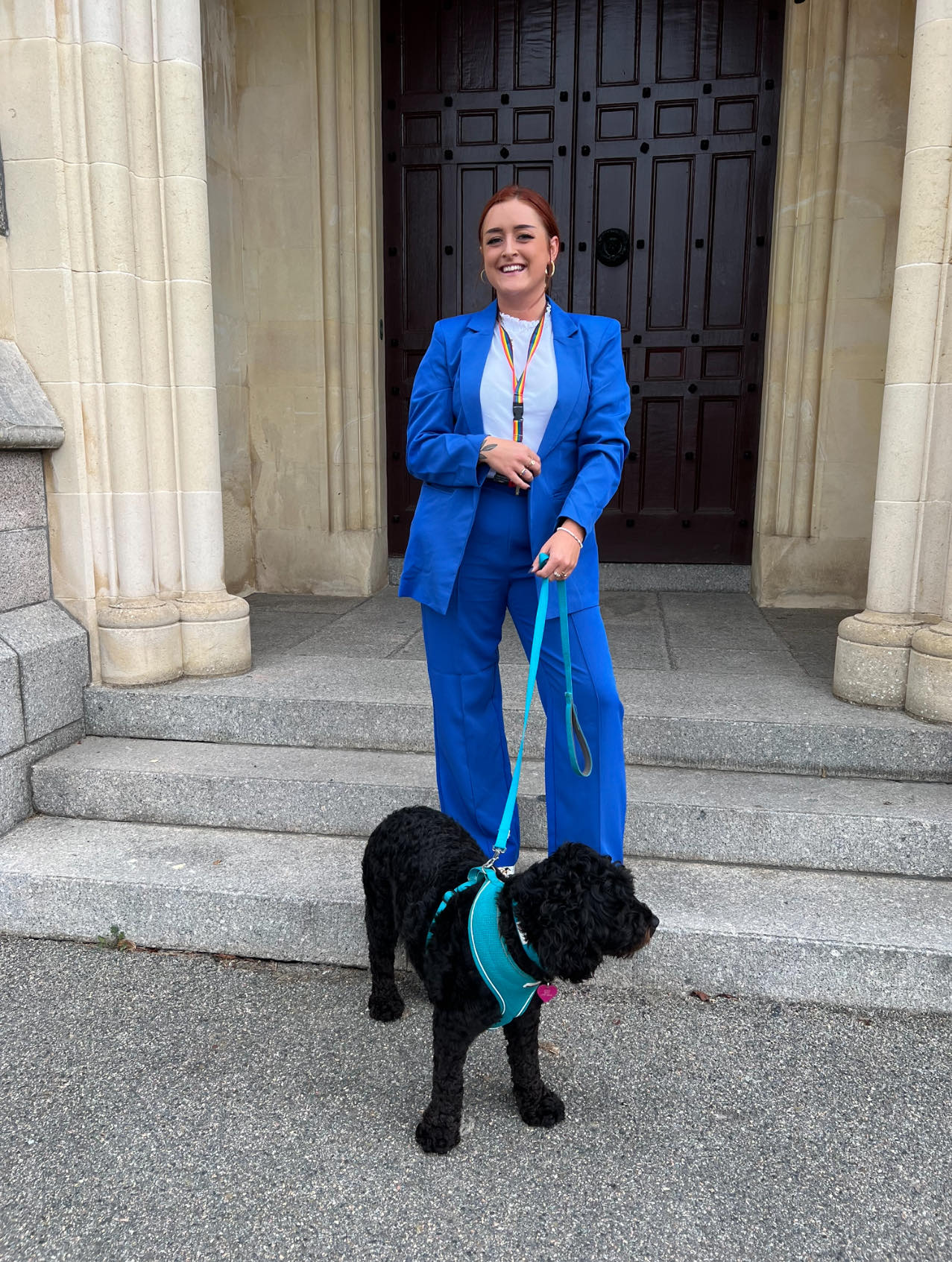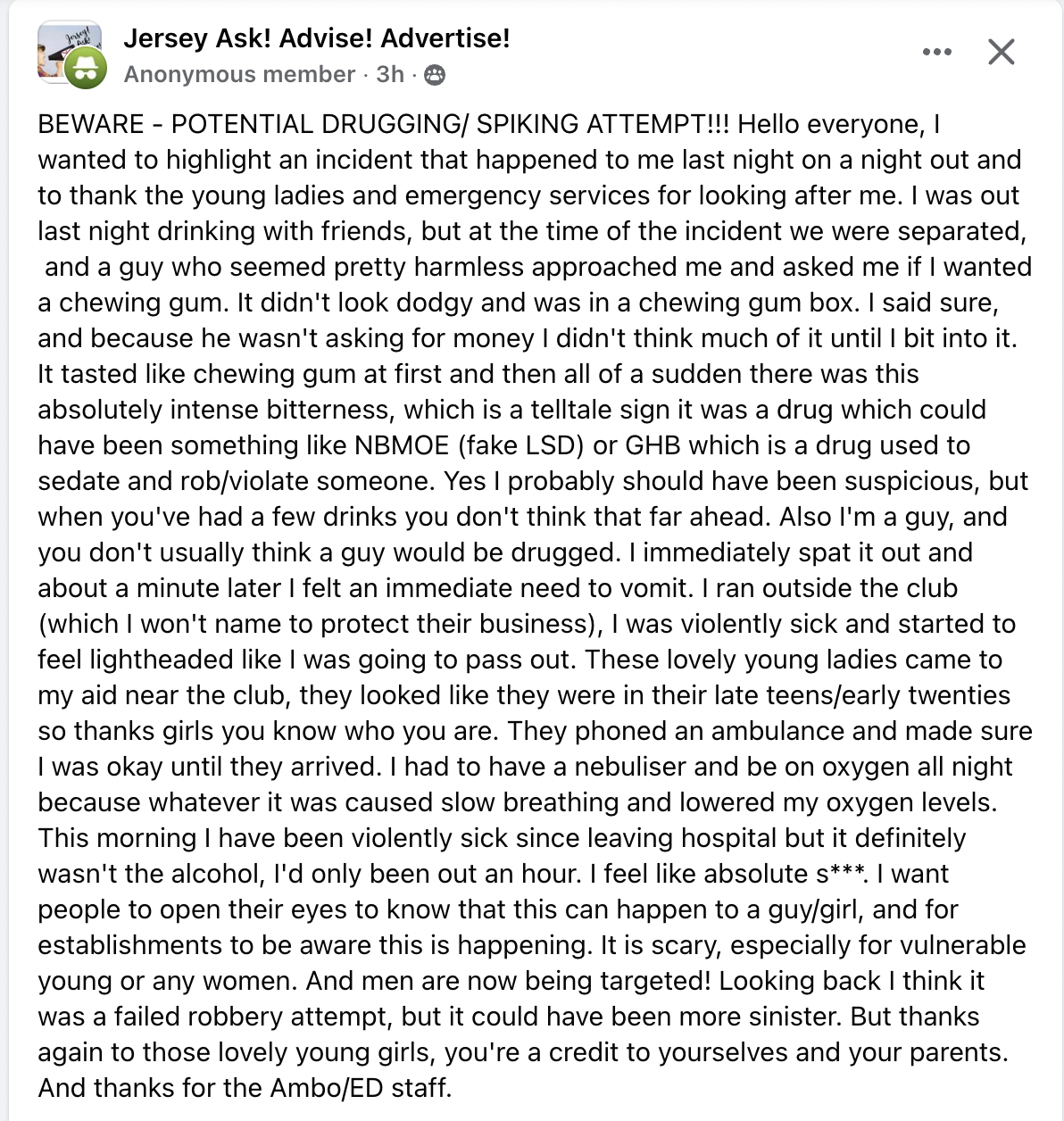


A young woman who headed an online campaign to clamp down on spiking and protect its victims has issued safety advice following an incident over the weekend that left a man in hospital.
Holly Shrimpton, who launched the ‘GRL SFTY’ campaign in 2019 to combat spiking after her own traumatic experience, said that such incidents are unfortunately more common in Jersey than many might think.

Pictured: Holly Shrimpton launched the ‘GRL SFTY’ campaign in 2019 to combat spiking after her own traumatic experience.
"Many people presume that spiking cannot or should not be reported due to the difficulty of evidence," the 28-year old said.
"Moreover, the trauma of the experience often discourages individuals from speaking to the police."
Her comments come after a man fell ill on Friday after consuming what is thought to be laced chewing gum that he accepted from a male stranger outside a nightclub.
Spiking is the act of putting a drug in someone's food or drink without their consent to impair their ability to function normally. It can also occur via needle spiking, which is when a person is injected with a drug.

Pictured: "I want people to open their eyes to know that this can happen," the man wrote on social media on Saturday afternoon.
Ms Shrimpton explained: "Most commonly, people are being spiked with MDMA, known as the 'love drug'.
"This means that if spiked, people act out of character and lose awareness of their surroundings."
The best way to keep yourself safe is to watch your drink being poured, or by ordering a drink from a bottle, she advised.
You should then drink your drink at the bar, rather than walking around, leaving it open for someone to put something in.

Pictured: Spiking is the act of putting a drug in someone's food or drink to make them unconscious, extremely tired, or unable to function normally.
"You can also cover the top of your glass or bottle with your hand," said Ms Shrimpton.
"There has also been reports of tablets being put into straws in the UK which are left on the bar for people to use, so blow through a straw first before putting it in your drink."
The campaigner continued: "Please do not accept drinks or food from strangers, even if they are purchasing it in front of you.
"This happens to both men and women, for various intentions."
If someone exhibits unusual behaviour or shows signs of being unwell, it might be a sign of spiking, explained Ms Shrimpton.
"Stay in groups, communicate about getting home safely, and call an ambulance if you suspect someone has been spiked," she added.
Police have issued the following advice:
For those affected, Jersey Action Against Rape offers a confidential helpline at 01534 482 800.
Police investigate spiking attempt involving laced "chewing gum"
Comments
Comments on this story express the views of the commentator only, not Bailiwick Publishing. We are unable to guarantee the accuracy of any of those comments.